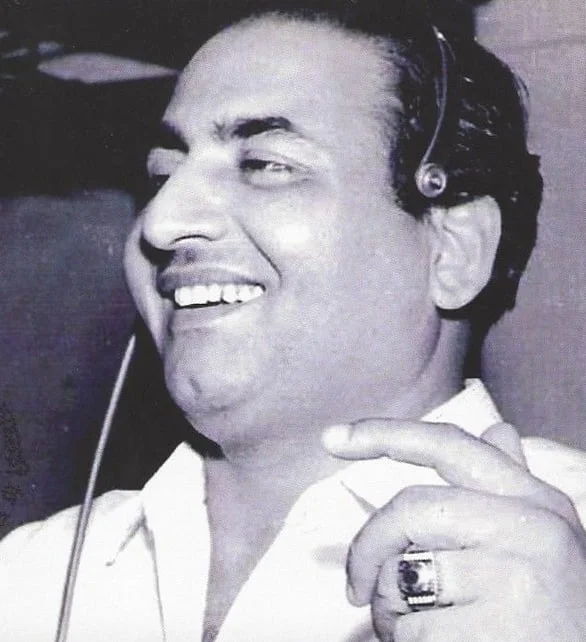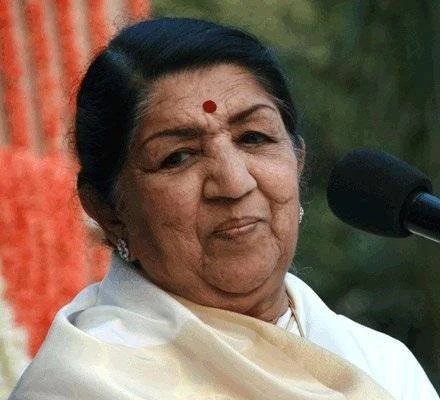Real Celebrities Never Die!
OR
Search For Past Celebrities Whose Birthday You Share

source:wikipedia.org
Mohammed Rafi
Birthday:
24 Dec, 1924
Date of Death:
31 Jul, 1980
Cause of death:
heart attack
Nationality:
Indian
Famous As:
Musician.
Age at the time of death:
55
Mohammed Rafi's Quote's
Early Life
Mohammed Rafi, born on December 24, 1924, in Kotla Sultan Singh, Punjab, India, was one of the most celebrated playback singers in the history of Indian cinema. With a career spanning over four decades, Rafi’s soulful voice and versatility made him a beloved figure in the world of music.
Musical Beginnings
Rafi’s journey in the world of music began during his childhood. He showed a keen interest in singing from a young age and received initial training from his elder brother, Hashim. His family moved to Lahore in 1935, where Rafi continued his training under Ustad Abdul Wahid Khan, a renowned classical vocalist.
First Steps in Playback Singing
In the early 1940s, Mohammed Rafi participated in a talent competition called the Punjab All India Singing Competition. Although he didn’t win the competition, his talent caught the attention of music director Shyam Sunder. Sunder offered Rafi a chance to record a song for the Punjabi film “Gul Baloch” (1944), marking his entry into the world of playback singing.
Breakthrough in Hindi Cinema
Rafi’s breakthrough in the Hindi film industry came in 1948 with the film “Lahore.” The song “Tera Khilona Toota Balak” became an instant hit, establishing him as a promising playback singer. His collaboration with music directors Naushad and Shankar-Jaikishan further elevated his career, leading to a series of successful songs in the 1950s.
Golden Era of the 1960s
The 1960s proved to be a remarkable decade for Rafi. He collaborated extensively with composer S.D. Burman and delivered numerous chart-topping songs. The romantic melodies from films like “Guide” (1965), “Aradhana” (1969), and “Jewel Thief” (1967) showcased Rafi’s versatility and ability to express a wide range of emotions.
Collaboration with R.D. Burman
Rafi’s association with music director R.D. Burman in the 1970s marked yet another successful phase of his career. Songs like “Kya Hua Tera Wada” from “Hum Kisise Kum Naheen” (1977) and “Chura Liya Hai Tumne” from “Yaadon Ki Baaraat” (1973) became iconic and are still cherished by music lovers.
Humility and Rivalry
Despite his immense popularity, Mohammed Rafi remained humble and grounded throughout his career. He had a deep respect for his contemporaries, such as Kishore Kumar, and often collaborated with them in duets. The friendly rivalry between Rafi and Kishore Kumar became legendary, with both artists delivering exceptional performances and entertaining audiences with their distinct styles.
Versatility in Regional Languages
In addition to Hindi films, Rafi also lent his voice to numerous regional language songs, including Punjabi, Bengali, Marathi, and Gujarati. His ability to adapt to different musical styles and languages further cemented his status as a versatile singer.
Untimely Demise and Legacy
Tragically, on July 31, 1980, Mohammed Rafi passed away due to a heart attack, leaving a void in the music industry. His untimely demise led to an outpouring of grief from fans and fellow artists alike. Rafi’s influence on Indian music continues to be felt even today, with his songs remaining timeless classics.
Posthumous Recognition
Posthumously, Rafi received numerous accolades and honors, including the Padma Shri in 1967 and six Filmfare Awards for Best Male Playback Singer. His contributions to Indian cinema were recognized with the establishment of the Mohammed Rafi Award, which is presented annually to outstanding playback singers.
Enduring Impact
Mohammed Rafi’s rich and diverse body of work, spanning ghazals, qawwalis, romantic ballads, and devotional songs, continues to inspire listeners.
Name:
Mohammed Rafi
Popular Name:
Mohammed Rafi
Gender:
Male
Cause of Death:
heart attack
Spouse:
Place of Birth:
Kotla Sultan Singh, Punjab, India
Place of Death:
Bombay, Maharashtra, India
Occupation / Profession:
Personality Type
Advocate: Quiet and mystical, yet very inspiring and tireless idealists. He was willing to work hard to get the perfection he aspire.
He originally belonged to Kotla Sultan Singh, a village in Amritsar district
Mohammed Rafi's nickname was Pheeko
BFJA Best Male Playback Award
Filmfare Award for Best Male Playback Singer
National Film Award for Best Male Playback Singer

